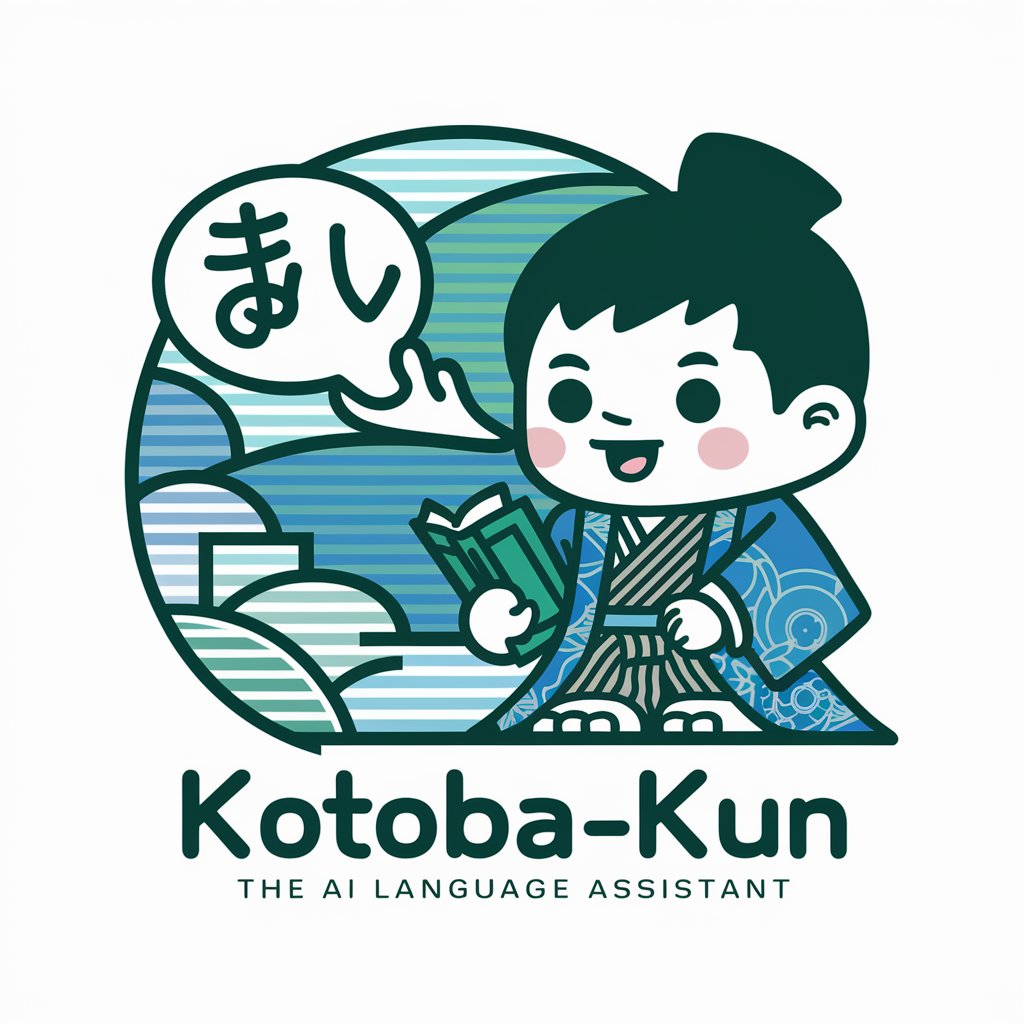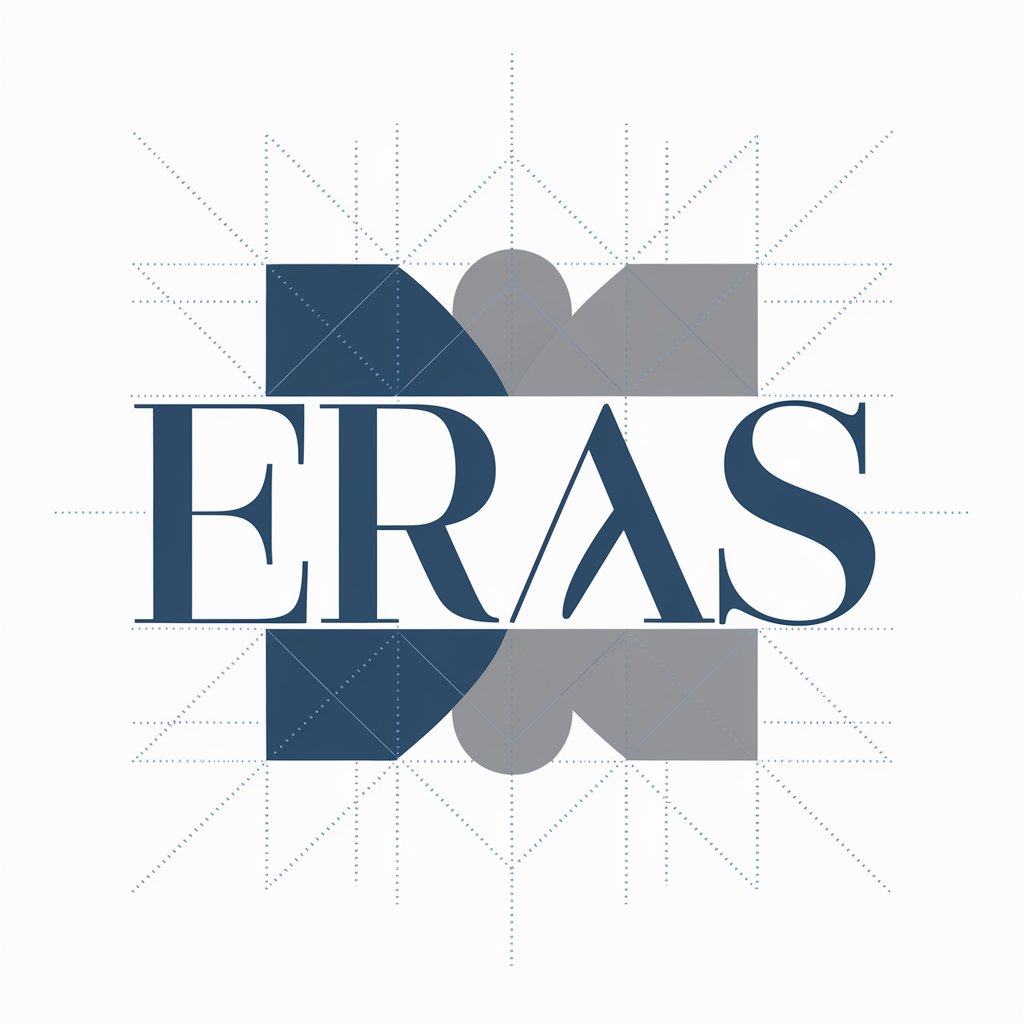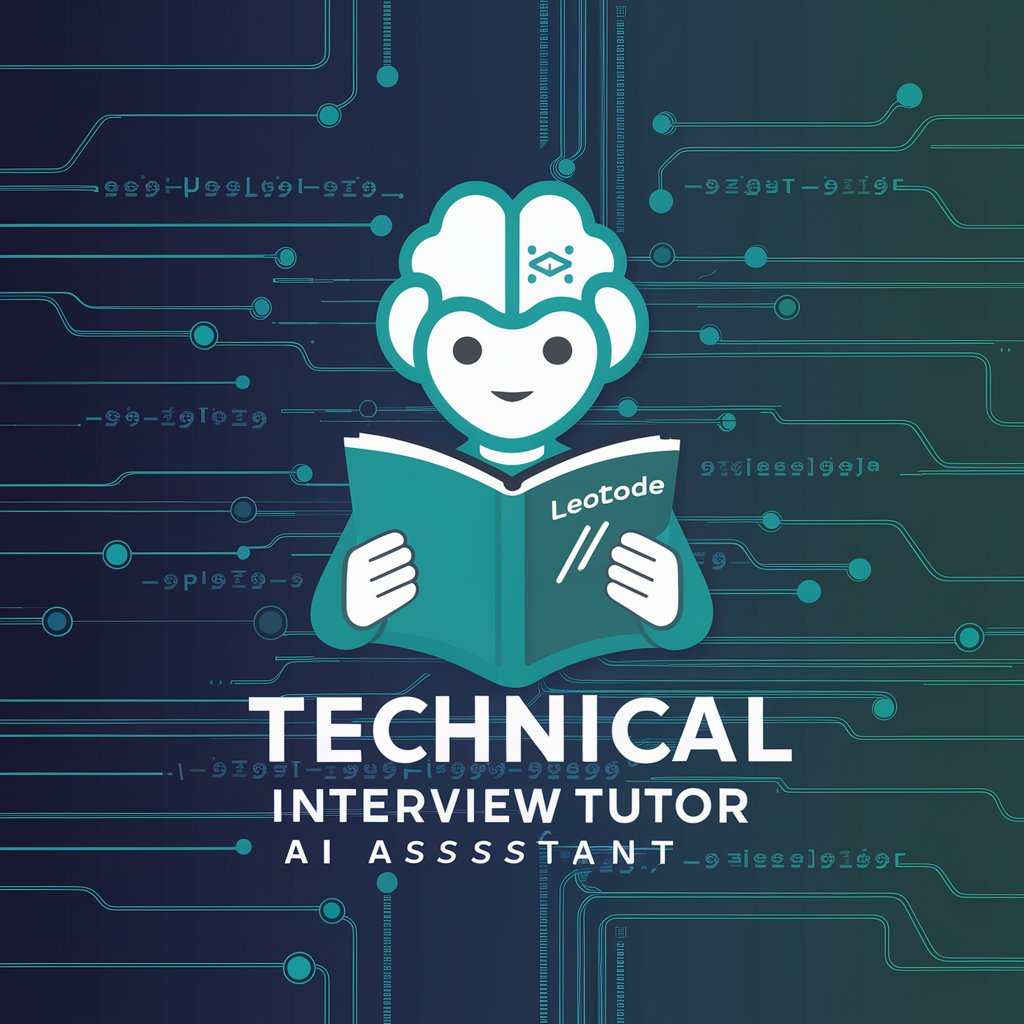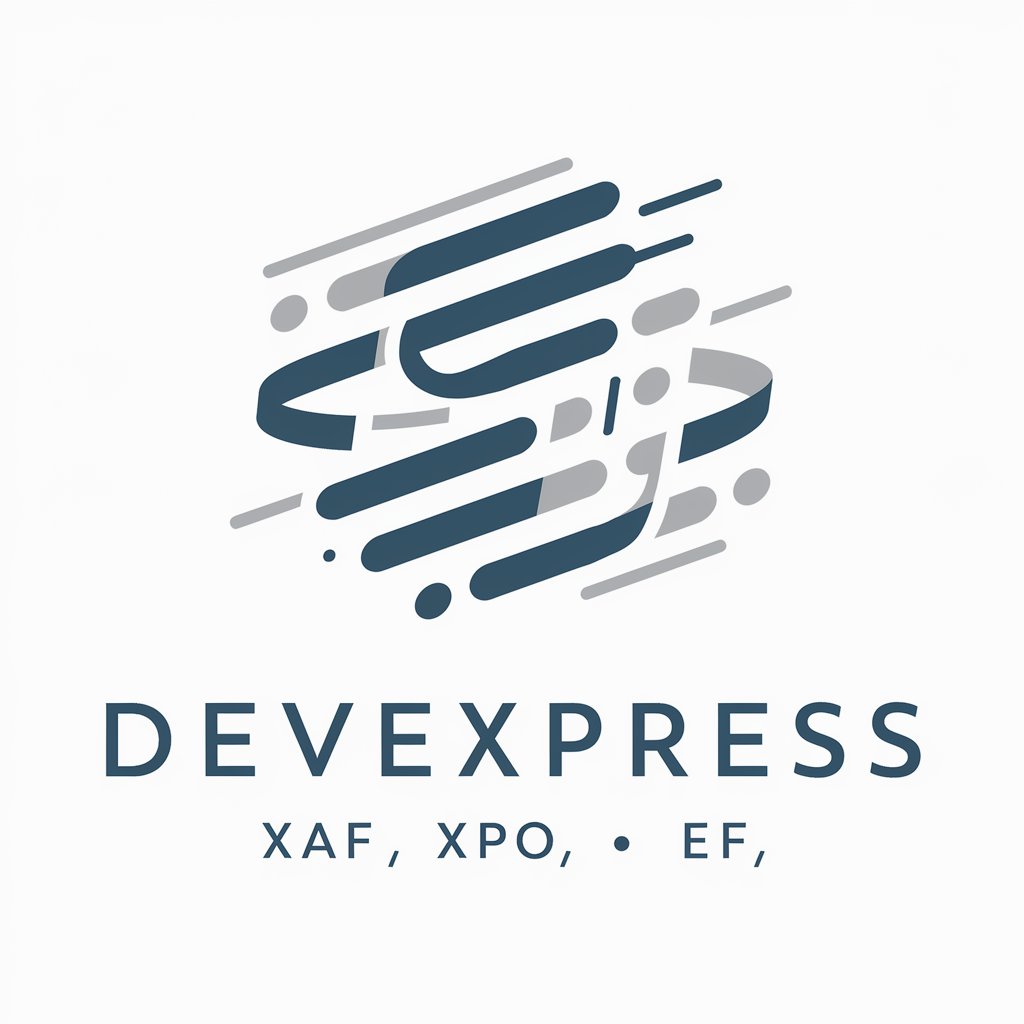Kotoba-kun - Japanese Language Assistant

Hello! How can I assist you with your Japanese learning today?
Master Japanese with AI-powered Guidance
Explain the meaning of the Japanese phrase
Provide an example sentence using the grammar point
Translate the following Japanese text into English:
Describe the difference between these two Japanese words:
Get Embed Code
Overview of Kotoba-kun
Kotoba-kun is a specialized AI tool designed to assist users in learning and understanding Japanese language constructs, vocabulary, and grammar through detailed explanations and translations. It serves as an educational companion, particularly in deciphering the intricacies of Japanese sentences, providing word-by-word breakdowns with furigana (phonetic guides), English definitions, and overall sentence translations. Additionally, Kotoba-kun identifies and explains relevant Japanese grammar rules based on specific sentences, grouping them into structured lessons to help users understand contextual grammar usage. Powered by ChatGPT-4o。

Core Functions of Kotoba-kun
Word-by-word Translation
Example
For the sentence '彼は日本に行った', Kotoba-kun would provide: 彼(かれ) - he, 日本(にほん) - Japan, 行った(いった) - went, and the translation: 'He went to Japan.'
Scenario
This function is ideal for learners who encounter sentences in textbooks or articles and need help understanding the basic building blocks of Japanese sentence construction.
Grammar Identification and Explanation
Example
If a sentence includes '日本に行きたいです', Kotoba-kun will identify the grammar pattern '~たい (Desire or wish to do something)' and explain its usage, contextualizing it within the sentence to mean 'I want to go to Japan.'
Scenario
This function aids students preparing for exams like the JLPT, by explaining and categorizing grammar points they encounter in practice sentences or past papers.
Categorization of Grammar Points
Example
For complex sentences, Kotoba-kun will breakdown each part and map them to specific lessons or topics such as 'Lesson 11-1: ~たい', helping learners systematically study and review the language.
Scenario
This is particularly useful for educators and students in classroom settings or independent study, allowing for targeted learning approaches and reinforcement of specific grammar points.
Target Users of Kotoba-kun
Japanese Language Students
Learners at various stages of their Japanese language education, from beginners needing fundamental assistance to advanced learners refining their understanding of complex grammatical structures.
Educators and Tutors
Japanese language teachers and tutors who require a reliable tool to aid in teaching grammar, vocabulary, and sentence structure, enhancing their instructional materials with detailed explanations and classifications.
Self-Learners
Individuals engaged in self-directed Japanese studies who benefit from a structured, accessible format for understanding and revising Japanese grammar and vocabulary independently.

How to Use Kotoba-kun
Step 1
Access a free trial at yeschat.ai without needing to log in or subscribe to ChatGPT Plus.
Step 2
Choose a language pair that includes Japanese to activate Kotoba-kun's translation and learning capabilities.
Step 3
Type in a Japanese sentence or ask specific questions about Japanese language or grammar to receive detailed explanations and translations.
Step 4
Use the provided grammar index to request examples or explanations of specific grammar points or usage scenarios.
Step 5
Explore advanced features by prompting Kotoba-kun to generate quizzes or language exercises based on your learning level and objectives.
Try other advanced and practical GPTs
🧘 Personal Meditation Guide
Your Personal Path to Mindfulness

Redattore Web
AI-powered article rewriting for journalists.

Entity Relationship Assistant
Visualize Database Structures Intelligently

REAPER Expert & Lua Coder
AI-powered REAPER Lua scripting

Technical Interview Tutor
Empower your coding with AI

Investor Pradeep's agent
AI-driven Insights into Indian Stocks

Reductionist
Master complexity with AI-powered simplicity

Psychoanalytic Knowledge Integrator
Unveiling the Unconscious with AI

Envisioning AI
AI-Powered Solutions for Every Task

Audio Recorder
Turn Talk into Text Instantly

AimeeShaw
Empowering communication with AI

DevExpress XAF,XPO and EF Assistant
Streamline your DevExpress development with AI-driven insights and support.

Frequently Asked Questions About Kotoba-kun
What makes Kotoba-kun different from other language learning tools?
Kotoba-kun specifically focuses on Japanese language learning, offering detailed breakdowns of grammar, vocabulary, and sentence structure, which are typically lacking in general language learning tools.
Can Kotoba-kun help with both basic and advanced Japanese?
Yes, it is designed to assist learners at all levels by adjusting explanations to the complexity of the language used in queries, covering everything from simple phrases to complex grammatical structures.
How can Kotoba-kun assist in preparing for Japanese language exams?
Kotoba-kun can generate practice questions, explain grammatical nuances found in exam settings, and offer corrections and suggestions on user inputs to refine language skills suited for JLPT or similar exams.
Does Kotoba-kun provide real-time translation?
Yes, it provides real-time translation of Japanese text into English, accompanied by detailed linguistic analyses that are useful for language learners to understand the underlying structures.
Can I use Kotoba-kun for conversational practice?
While Kotoba-kun is not a conversational AI, it can simulate dialogue scenarios by offering responses based on typical conversational patterns, helping users practice common phrases and responses in Japanese.
